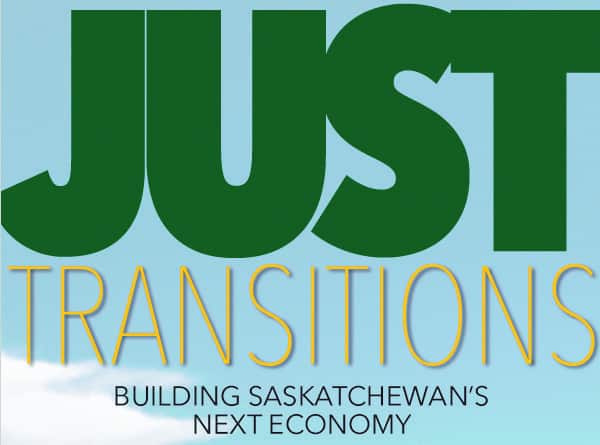Charting the course for a just transition to a sustainable city

Social justice and environment entwined
Currently, the city of Regina is heavily dependent on one specific mode of transportation – cars. But private transportation is not accessible to everyone and it’s harmful to the environment; therefore, it is time that Regina begins adopting policies to develop a just and sustainable city for all, and that starts with affordable, accessible public transit.
University of Regina professor of geography and environmental studies, Emily Eaton, and Saskatchewan director of the Canadian Centre for Policy Alternatives, Simon Enoch, co-authored Renewable Regina: Putting Equity into Action – a report that makes recommendations and encourages Regina City Council to centre equity and social justice when putting the 100 per cent Renewable Regina motion into action.
“I think a lot of people think of Regina as a car-dependent city, and that conceptualization of our city really hides the number of people for whom a private car is not achievable in terms of, you know, just having the money to buy or operate a private automobile,” Eaton said. “A lot of people within our city don’t even have the funds to be able to take public transportation [the bus] every day. Lots of people are walking very long distances or bicycling in really terrible weather in the winter.” She said that “something that would immediately make those peoples’ lives better would be something like fare-free public transit.”
The report acknowledges the different struggles that face different social groups in Regina and attempts to accommodate the needs of all.
“In [Regina’s] path towards one hundred percent renewability, the city is going to make certain investments and it was our view through the research, that those investments should be made in communities and people who have experienced marginalization, so as not no reproduce the inequalities associated with what you might call the carbon economy,” said Eaton.
There were a number of focus groups held throughout the study, with representatives from a number of marginalized groups sharing their concerns about how the transition to a 100 per cent sustainable city will impact those who are often negatively impacted by public policy. Some of the groups represented were Indigenous people, women, 2SLGBTQ+, newcomers, and disabled people. These groups were created in order to centre the needs of community members who are often ignored and sidelined when it comes to policy decisions.
“The places that have the most success at implementing either one hundred percent renewability or more sustainable policies at the city level have been places that acknowledged early on that climate change is going to disproportionately affect the most marginalized in the city –- so you have to really think about that when you’re introducing climate policies at the city level that you don’t exacerbate those inequalities,” Enoch noted.
One resource that is heavily used by marginalized people in Regina is public transit. It’s used by many on a daily basis, and will play a critical role in the push for a more sustainable city, but there are still groups of people who do not feel safe using the transit system due to fear of discrimination and/or verbal and physical abuse.
“There is a genuine fear amongst certain LGBT people about riding transit [or being] in public spaces sometimes because they fear violence,” Enoch said. “So that learning about how other people experience the city – that our experiences aren’t equal – I think that insight is so important when designing policies that ensure that the city will be inclusive for all of us.”
Through any period of change, there are always concerns and worries. As the 100 per cent Renewable Energy motion is put into action, Enoch expresses that he is concerned that these policies will “just steam-roll in and won’t consider equity groups.”
As provincial and municipal elections approach on October 26 and November 9, respectively, it is important that elected officials and representatives take into account the unique experiences of different groups to ensure that all people in Regina are supported in the ways that they need to succeed and can access the resources they need, so that the transition to a more sustainable future doesn’t end up exacerbating existing inequalities.
“We need a city council that is clear-eyed about this,” said Enoch. “We need to ensure that any improvements we make don’t end up hurting the people we want them to help.”
Enoch encourages each and every person to get out and vote in their municipal elections.
As the conversation surrounding equity and sustainability continues in Regina, it is important that young peoples’ voices are being heard.
Eaton shared that she believes youth have “a better understanding of how these different axes of inequality and oppression intersect […] Just because you do come from a privileged background doesn’t mean that you don’t have a place in holding other people’s signs as well,” she said.









